Interview: At Home with GOLDEN DOOR SCHOLARSHIP Founder Rian Keating
The creator of lauded cabaret show IN THIS TRAVELING HEART has a story that grows more interesting, the deeper you go.
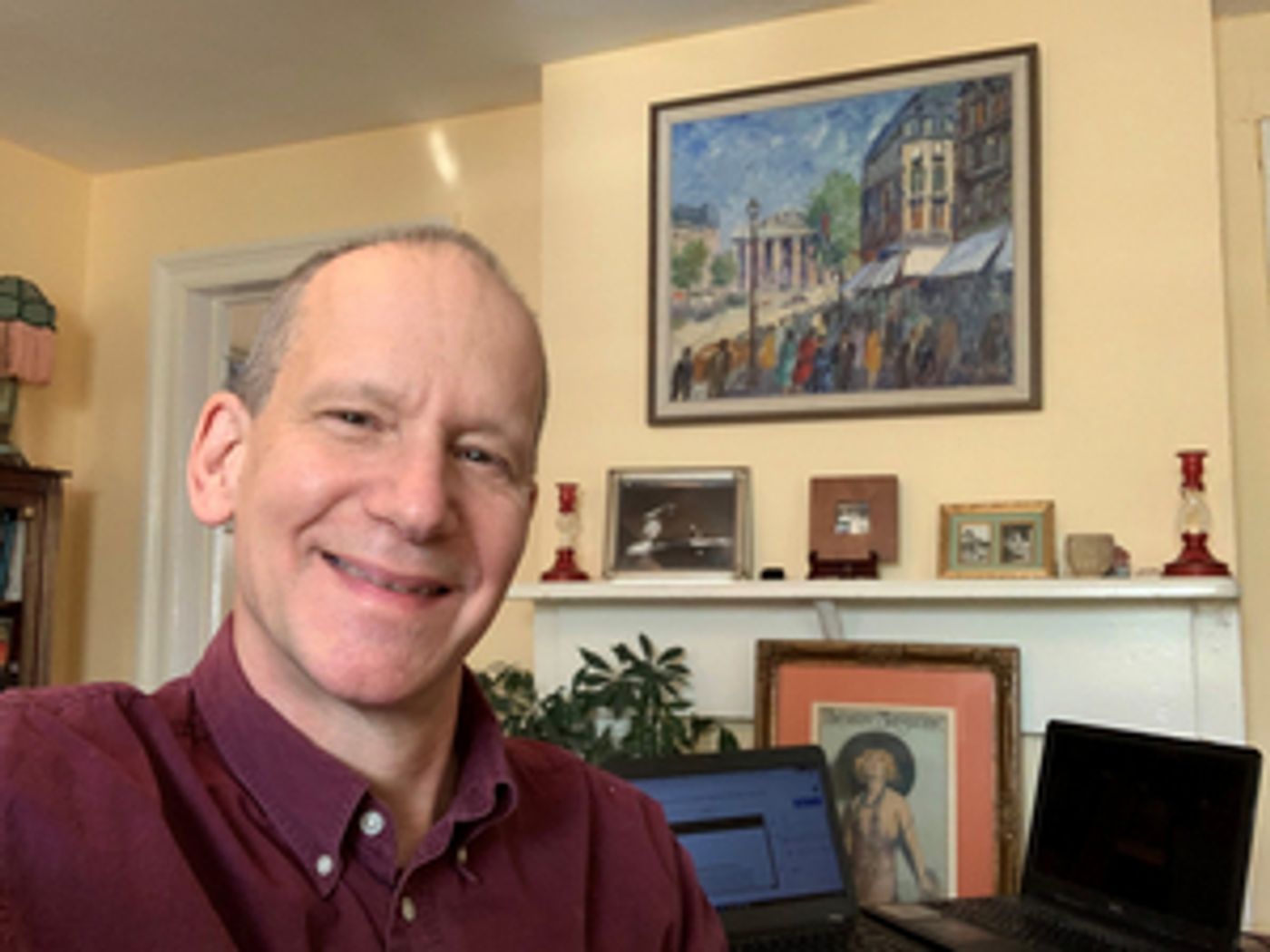 Rian Keating is a bit of a surprise. He totally sneaks up on you when you least expect it. A seemingly shy, quiet, unassuming man who is seen in the audience at every nightclub act and cabaret show in town, he always greets you warmly, with a sincerity that is refreshing in a jaded world filled with cynicism and people working an angle. He asks for no more than to be allowed the pleasure of your company, the privilege of supporting your artistry, and the occasional piece of trivia that he has tucked away for just the right moment.
Rian Keating is a bit of a surprise. He totally sneaks up on you when you least expect it. A seemingly shy, quiet, unassuming man who is seen in the audience at every nightclub act and cabaret show in town, he always greets you warmly, with a sincerity that is refreshing in a jaded world filled with cynicism and people working an angle. He asks for no more than to be allowed the pleasure of your company, the privilege of supporting your artistry, and the occasional piece of trivia that he has tucked away for just the right moment.
Then comes the surprise.
Rian Keating is a storyteller with a personal vault of fascinating canvases that he paints for you with florid verbiage and vivid grammar. Raised in adversity and schooled in unhappiness, the 18-year-old got on a bus to New York and never looked back. In a day when a Broadway ticket cost what a meal in today's Times Square costs, when the AIDS crisis was just beginning, and when a kid from out of town could get a Broadway legend to appear on their cable access talk show, Rian Keating started his life - one of the most interesting lives and stories you've ever heard.
Rian's 2019 cabaret IN THIS TRAVELING HEART was a popular show made up of storytelling and song, telling Keating's tale up to the day he stepped off the bus in New York City. Compelled by the part of his story I had heard, I asked to chat with him about what happened after, and it could make another two shows or maybe a written memoir; the philanthropic teacher was more than happy to talk about Gwen Verdon, his scholarship program, and being a member of the cabaret community for four decades.
This interview was conducted digitally and is reproduced with minimal edits.
Rian Keating, welcome to Broadway World. I've been hoping to get you for an interview for some time and I'm glad it's finally happening.
Thank you for thinking of me. I have so enjoyed reading about all the wonderful people you have spoken to over the last year and seeing how they are faring during this challenging time.
Before the lockdown, you did a show titled IN THIS TRAVELING HEART that got such a response from audiences that you were forced to extend, repeatedly. What goes through a cabaret performer's head when faced with the need for a show extension - more excitement or exhaustion?
I'm laughing now because it is always a concern how a cabaret performer is going to fill the room and "wrangle those cover charges", so when I booked the initial engagement those fears went through my mind. I've made a lot of friends through Lennie Watts' wonderful Singasium and Master Classes with Steve Ross and Lina Koutrakos, so I knew I would be good for a couple nights, but four? When I took the stage opening night and was most unsure of how this particular show was going to be received, it seemed everyone decided to book for that evening. A critic with a camera and a psychologist were in the front downstage right seats, so I thought I'd better stand up straight and deliver the goods as best I can, but more worrisome was what was she going to say to him when it's over? But the response and word of mouth was overwhelming and my director Tanya Moberly told me after the second performance that I was experiencing something that doesn't happen very often, so I had better embrace it, be in the moment and enjoy the journey. But because the show was a memory piece and everyone in it are ghosts, an extension meant having to live with the past for a few more months. But the opportunity to bring my parents to life once more and say my sister Moira's name aloud again was too precious an opportunity to pass up.
Your New York story and your show business story are both fascinating and fabulous - would you ever consider a written memoir?
You must mean the story about the boy who ran off to New York City the night he graduated high school and got mugged the next day in broad daylight outside a preview of "Got Tu Go Disco" and stayed for forty years. Everyone tells me I should write, but writing is the loneliest form of expression.
What was your introduction to the world of cabaret?
A friend was playing for a singer at 28 Cornelia Street on a snowy February evening in 1981 Jan Wallman greeted me at the door and told me there was a three-dollar minimum. I had a bowl of soup at the bar and among the other songs, the singer sang "When I Look in Your Eyes" from Doctor Doolittle and "You and I" from Goodbye Mr. Chips. Songs I knew and loved because I had bought the cutout albums at Woolworths. When she gave me the check, Jan asked me if I was a singer, too. I turned scarlet but knew that cabaret was what I wanted to do.
For a while in your early life in New York, you were a celebrity interviewer - how were you able to make that happen, and why did you end it?
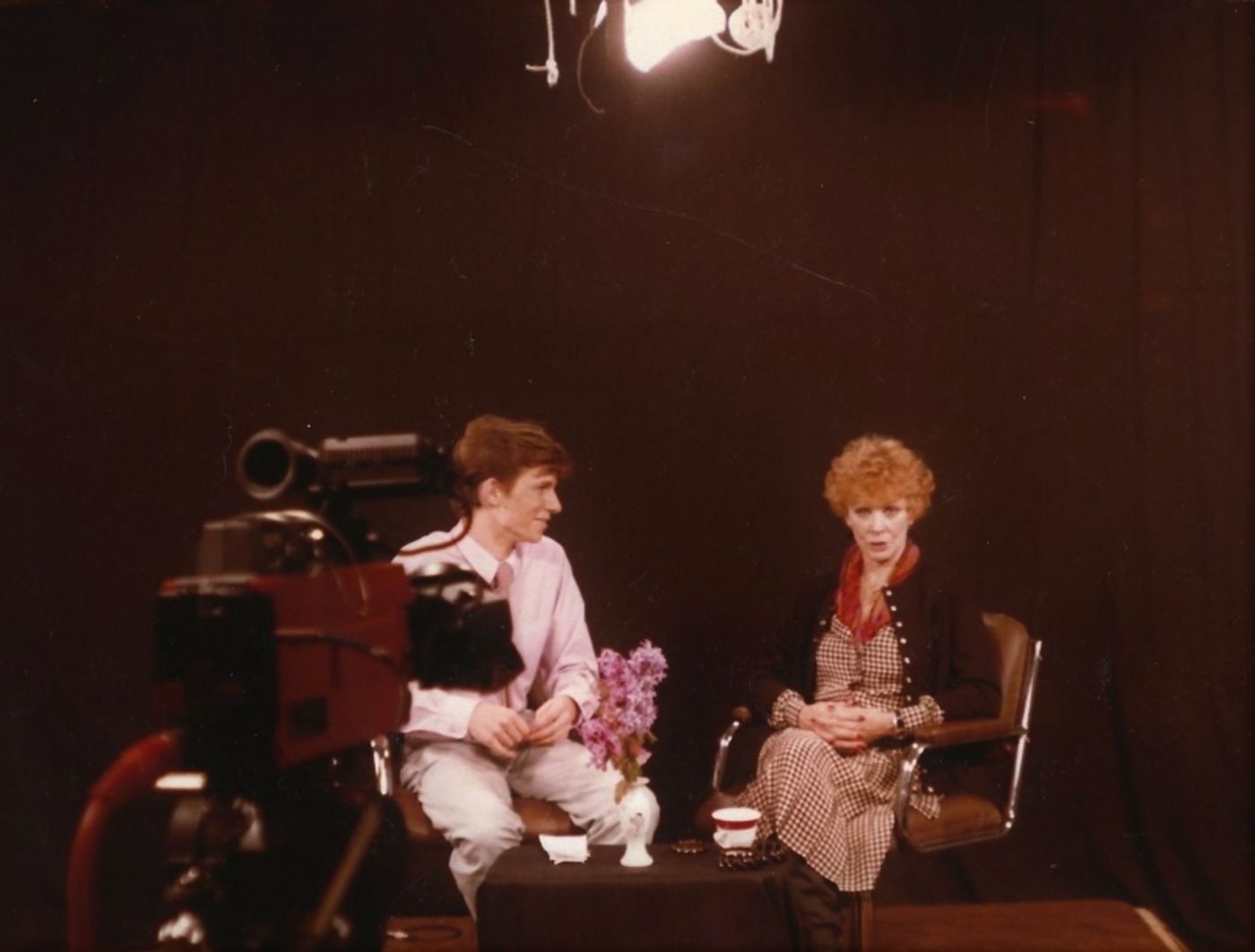 When I was twenty-two, my tenement building was wired for cable and I discovered that because of public access, anyone could be on TV. Like cabaret, you had to produce it yourself, but so what? It happened very quickly, I called cable and got a weekly time slot. Then I had to come up with a show. Although I was painfully shy, it came to me that I should do celebrity-type interviews and I coined myself "the poor man's Dick Cavett without the self-reverence". Even though I was frightfully ill-at-ease around people, I knew I could pull this off. When I was an isolated teenager, I had collected autographs because mail from a Broadway star let me know there was life beyond the valley in which I lived. The thing that gave me confidence was this: The winter I broke my parents' hearts and told them I wasn't going to college but moving to NYC right after high school. I was planning to move to the city to find a place to live and a job. And because I wanted to meet Donna McKechnie, I wrote asking her not for an autograph but for an interview for a paper I had to write for my journalism class. So imagine my mother's shock when the phone rings and it is Donna McKechnie asking for me. And her act of kindness made me realize that all I had to do was ask.
When I was twenty-two, my tenement building was wired for cable and I discovered that because of public access, anyone could be on TV. Like cabaret, you had to produce it yourself, but so what? It happened very quickly, I called cable and got a weekly time slot. Then I had to come up with a show. Although I was painfully shy, it came to me that I should do celebrity-type interviews and I coined myself "the poor man's Dick Cavett without the self-reverence". Even though I was frightfully ill-at-ease around people, I knew I could pull this off. When I was an isolated teenager, I had collected autographs because mail from a Broadway star let me know there was life beyond the valley in which I lived. The thing that gave me confidence was this: The winter I broke my parents' hearts and told them I wasn't going to college but moving to NYC right after high school. I was planning to move to the city to find a place to live and a job. And because I wanted to meet Donna McKechnie, I wrote asking her not for an autograph but for an interview for a paper I had to write for my journalism class. So imagine my mother's shock when the phone rings and it is Donna McKechnie asking for me. And her act of kindness made me realize that all I had to do was ask.
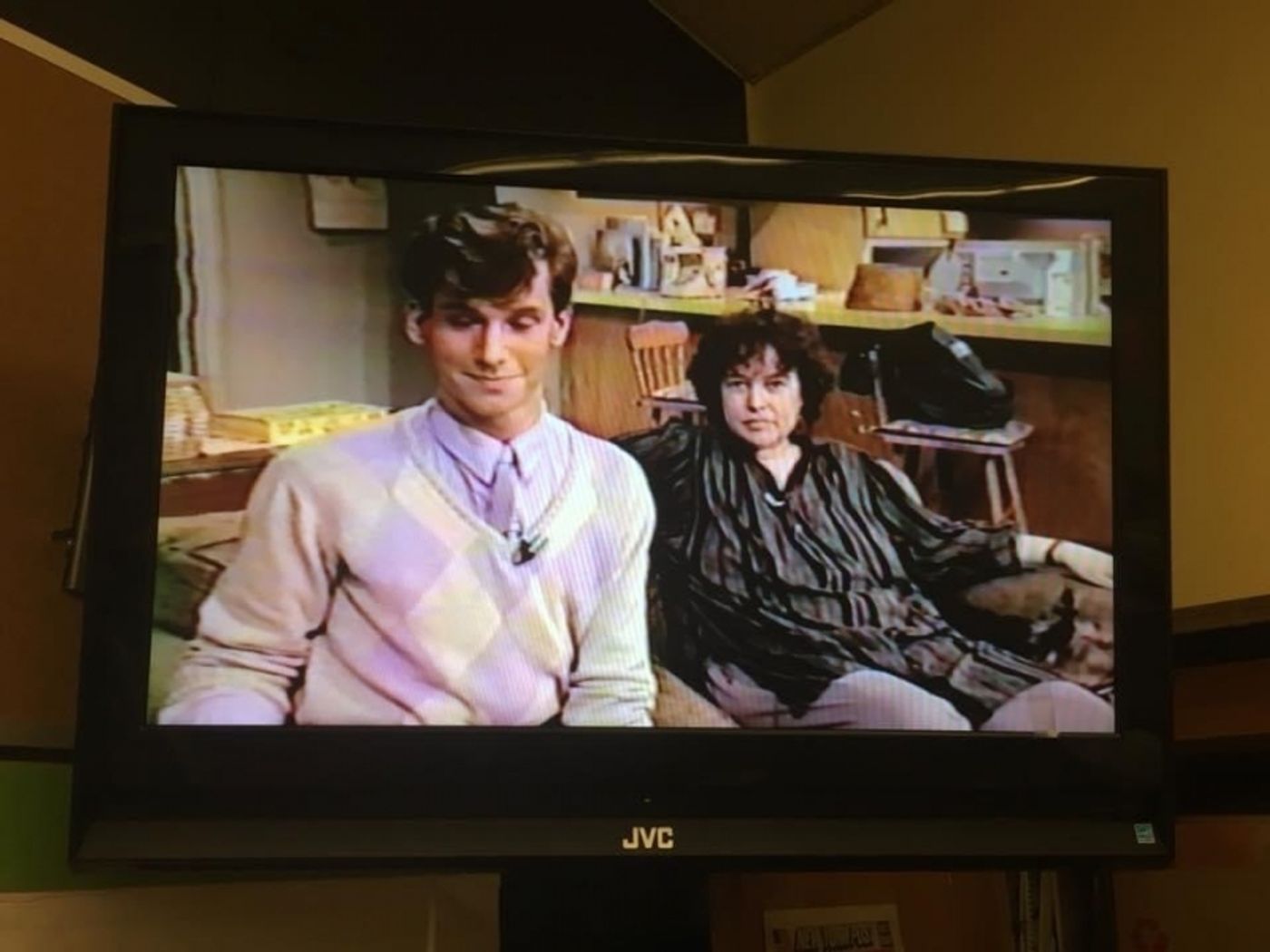
And so despite the hearing issue and not having any interview training, I would go to the Lincoln Center Library's research division and find out all the facts about the guest, always introducing something very obscure in the first five minutes of the interview. Marge Champion was annoyed the studio was so hot and was throwing out some shade, but you see her melt as far as I was concerned when I asked her about other students of her dance teacher father, one of whom was Gwen Verdon. I looked up Fosse in the phone book and saw Nicole's name listed, so I called hoping Gwen would pick up the phone and she did. She said she hated those kinds of things, but I told her she could use it as a platform to promote anything she wanted and so she did it, ultimately talking about getting pregnant as a teenager and the psychological needs of performers. "Spotlight!" became the little show that could and after Gwen Verdon, it was easy to get people such as Bebe Neuwirth, Maria Karnilova, Shirley Knight, Jane Connell, George Rose, Cleavon Little, Milo O'Shea, and Kathy Bates.
I stopped for two reasons: press agents started sending me people I wasn't particularly interested in (Charlie Sheen was a particular chore) and AIDS was in full swing. Reagan was the president and there was important work to be done. I became a Crisis Intervention Worker at GHMC and worked with newly diagnosed AIDS patients.
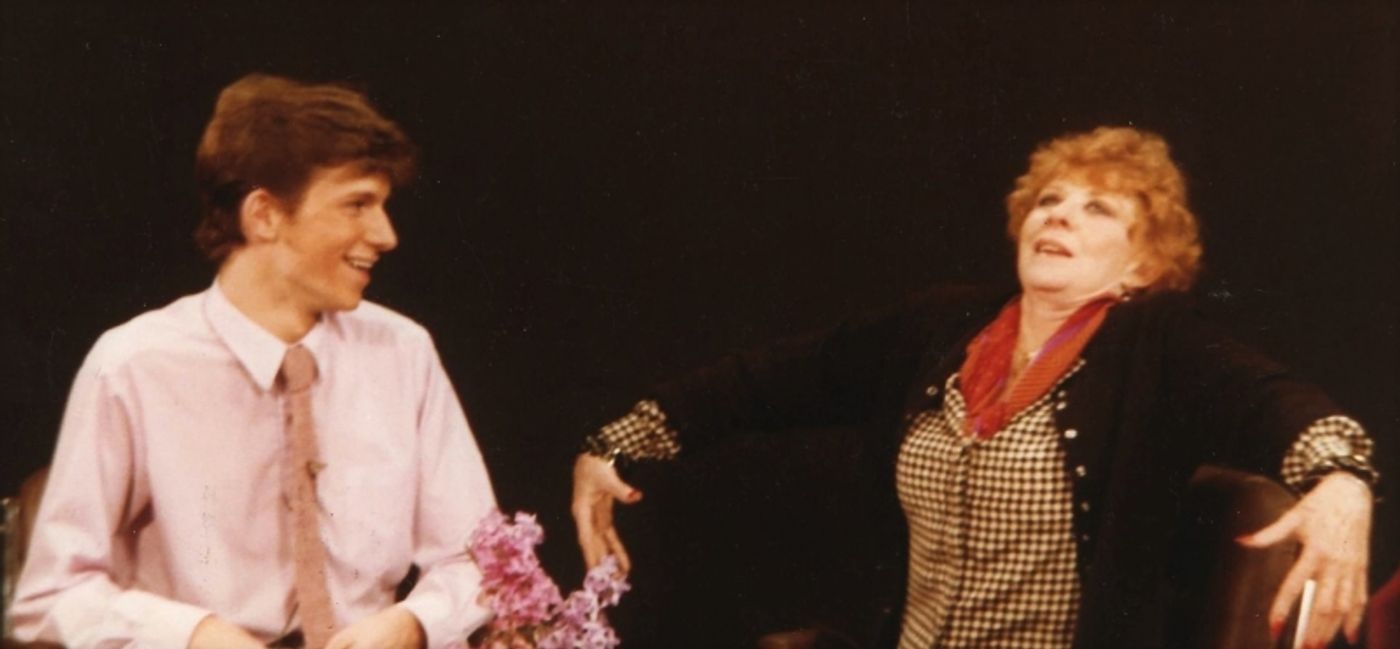
After a decade of living and pursuing the arts in New York City, why did you shift gears to the vocation of teaching?
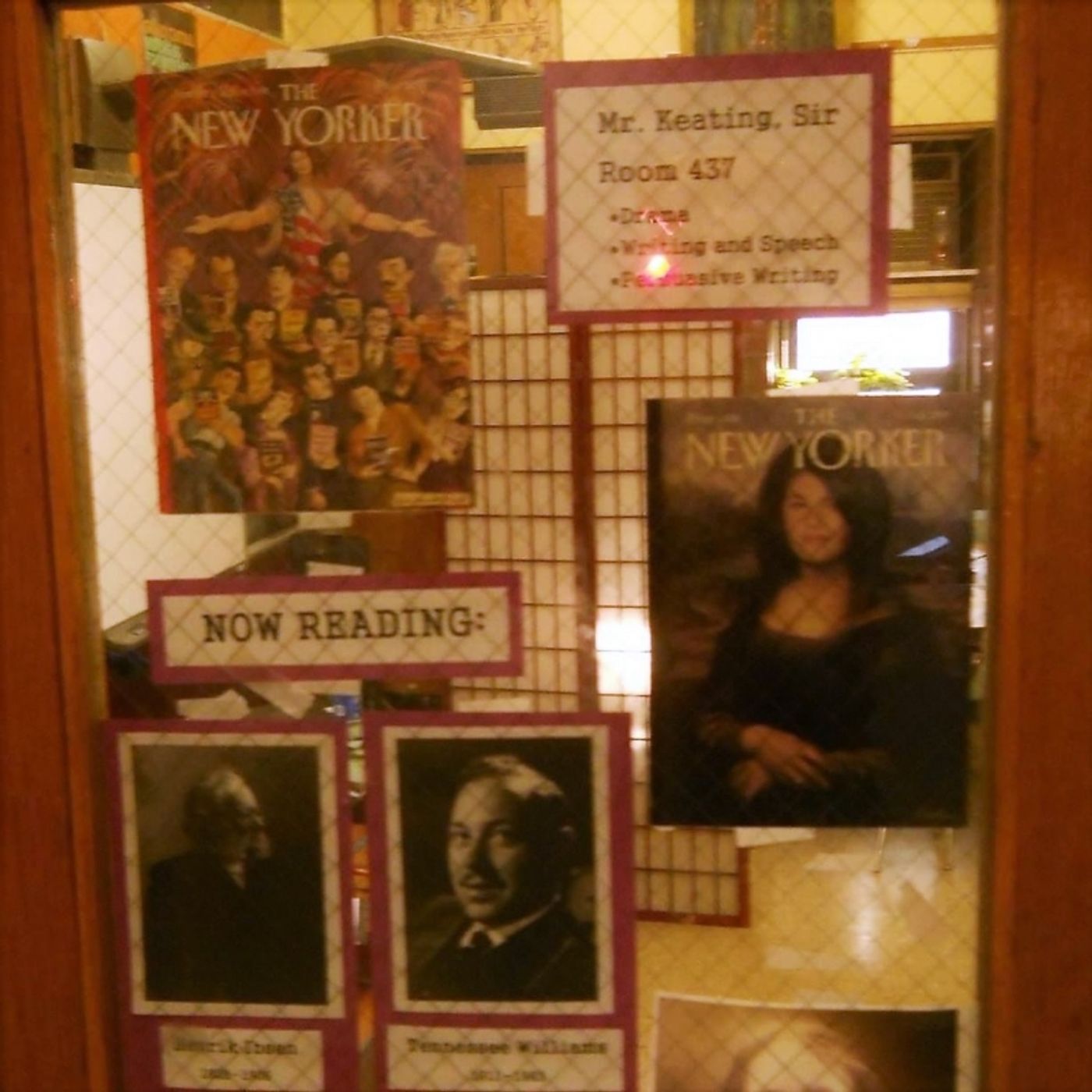 Well, I had lost a lot of my friends in my twenties. And watching them die made me very aware of the value of time and I wanted to do something that would have more meaning. As the epidemic took hold, music was the one thing that I kept constant. And Friday mornings in the basement of HB studios was the oasis from all this tragedy: a master class on acting a song with Donna McKechnie. And week after week, I would watch how she would create a space that allowed each performer to access their most vulnerable parts and take risks to get to the next level. It was very specific and very delicate work and fascinating to watch people metamorphosize. And one Friday morning I had the epiphany: to combine the skills I had acquired in my twenties with a formal education and become a high school English teacher. It meant starting college at thirty, working midnights, and giving up everything else. But when I failed the first grade because of the hearing, I retreated into an imaginary school in my bedroom where the Dodger and the von Trapp children were my imaginary students, so the idea was clearly embedded in my subconscious. But I remember walking out of HB that Friday morning, walking down a back street in the May sunshine very much alive and knowing there was a future.
Well, I had lost a lot of my friends in my twenties. And watching them die made me very aware of the value of time and I wanted to do something that would have more meaning. As the epidemic took hold, music was the one thing that I kept constant. And Friday mornings in the basement of HB studios was the oasis from all this tragedy: a master class on acting a song with Donna McKechnie. And week after week, I would watch how she would create a space that allowed each performer to access their most vulnerable parts and take risks to get to the next level. It was very specific and very delicate work and fascinating to watch people metamorphosize. And one Friday morning I had the epiphany: to combine the skills I had acquired in my twenties with a formal education and become a high school English teacher. It meant starting college at thirty, working midnights, and giving up everything else. But when I failed the first grade because of the hearing, I retreated into an imaginary school in my bedroom where the Dodger and the von Trapp children were my imaginary students, so the idea was clearly embedded in my subconscious. But I remember walking out of HB that Friday morning, walking down a back street in the May sunshine very much alive and knowing there was a future.
In spite of making this change in your personal trajectory, you have remained an active member of the cabaret community all these years - why was that important to you?
Because the people I met there like me, dammit. And I like them.
Have you been able to continue your teaching during the last year?
I went remote last March and I have been upstate. The students don't always show their faces and often it is just a voice coming out of the empty zoom box. To keep them emotionally and academically engaged is enormously challenging, but I've discovered reading plays together keeps them engaged and wanting to log on. I don't think they are as traumatized as they were in the spring, so an escape to Grover's Corners or trying to get to Bountiful engages them in a way that allows for deeper meaning. It is ironic because they prefer the anonymity of not showing their faces. But it is the hardest thing I have ever done.
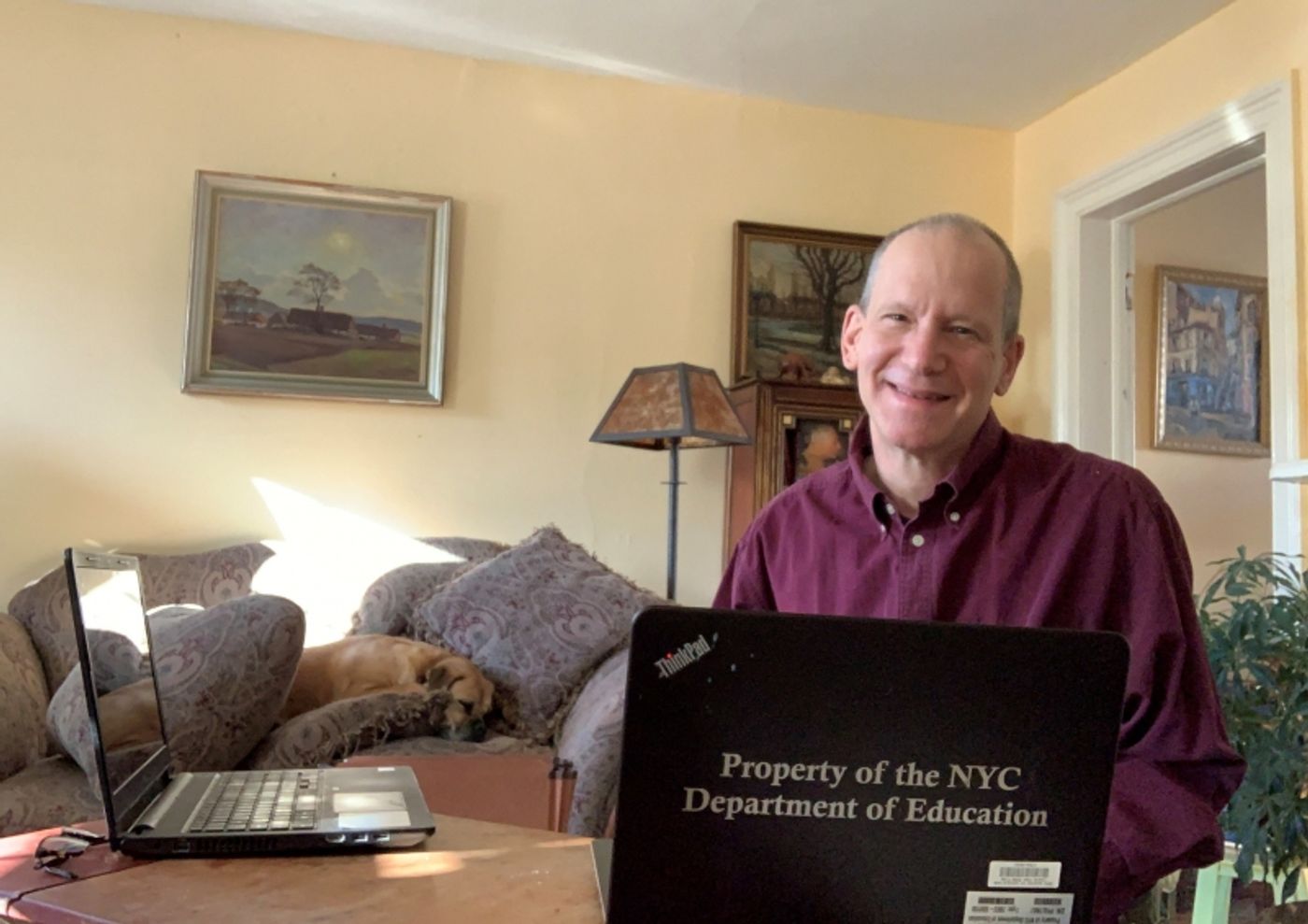
IN THIS TRAVELING HEART was a benefit for The Golden Door Scholarship. Tell me about the foundation of the scholarship.
A lot of my students are undocumented immigrants and for them, the dream of an American college education is often out of reach because they are not eligible for financial aid or loans. We don't always know their backstories, but a few years ago, I was talking to a boy from Ecuador who told of his journey to America to escape drug wars: when he was fifteen he was handed false papers and told the next day he would be flying to NYC and if he got through immigration, he would be picked up by an uncle whom he had never met. He wanted to go to college and although I hadn't done any cabaret in over a decade, I thought I could do a show and raise some money. That was seventeen years ago and it kind of took off from there.
To be specific, all of the shows that you do benefit the scholarship. Since the foundation of Golden Door, how much money have you raised to put young people through school?
All told, about $60,000. I try and perform twice a year and although all the cover charges are all donated, I have attracted some faithful and very generous donors over the years. It is really the little scholarship that could!
During the quarantine, you were not able to do any performing, and yet you still managed to raise money for Golden Door, didn't you?
I had a cabaret date booked for my sixtieth birthday in October, but everything was shut down, so I hemmed and hawed, posted, and deleted and reposted a Facebook fundraiser for the Golden Door Scholarship. It was only up a couple of days, but everyone, especially in the cabaret community responded with enormous generosity and it raised nearly seven thousand dollars. It was enormously humbling.
Tell me two stories, if you will - one about the general experience of working with the students you teach and one about a particular student who left a particular impression on you.
Being alternative, my school has a diverse student population: at-risk, overaged, under-credited American students and an immigrant population, so I can't generalize. Here is one of the best days, when your lesson plan goes out the window, but everything works out okay: Two students come into my classroom in the middle of an altercation that started in the hall. She is a loud, 4'10'' "homegirl" and he is a 6'1" cock-of-the-walk Egyptian immigrant. He is saying if she doesn't shut the f*ck up he is going to smack her. While she is taking off her earrings, which means she is ready to rumble, everyone else is taking out their phones to record the show. I block him, thrust a script in his hand, and tell him, "Guess what? Today is your day to play Tom Wingfield. You want to go to the movies. Your mother (pointing at her) thinks you're lying. You need to get away from her, so keep moving and don't let her within six feet." To her: chase him. Their basic narcissism validated, the situation was diffused. To great laughter and applause, I might add.
The other student I can tell you about is Feng Yi, who came from China for health reasons. I had heard about her before I met her: she was the girl who had gone to Disneyland through the Make a Wish Foundation. So I knew her situation was grim. The summer before last, I was teaching summer school and on the first day, there was her name on the roster and there she was in the front row. She had heard about Mr. Keating, she announced, and wanted a challenge. My kind of humor. And she delivered. She didn't come consistently, but she was insistent on doing all the work, applying to colleges, and involved in an extracurricular arts program. She wanted to embrace it all: she was a Christian and had a rock-solid faith in Christ. And although I no longer believe, I realized that I had much to learn from her. The last time I saw her was the day before the schools closed last March, crouched by her locker getting her books. By then the danger of the virus was clear and I was startled to see her because she had been quite ill. When I gave her the teacher-man business about what the hell she was doing out and about, she stood up and told me that it was a beautiful day and not to talk nonsense. A real moment in time. I was glad to have known her and was reminded about the ephemeral nature of our existence.
Rian, when everyone has been vaccinated, when life begins to go toward some kind of normal again, what will be the next creative move for you?
After a long exhale, I'm looking forward to getting back into the classroom and doing some dramaturgy with the students about their pandemic experience and making sense of the socio-emotional fallout that they have endured. As far as cabaret, I want to revive an evening I did long ago of Jacques Brel songs. Just to sing. That would be a dream.
Thank you so much for chatting with Broadway World today - I am most grateful to you for continuing to share your story with us.
Visit the Rian Keating YouTube channel HERE.

Videos

